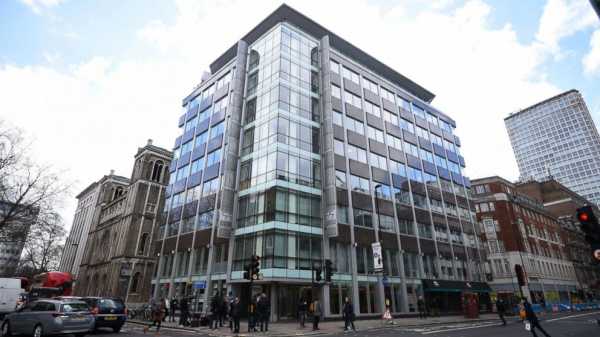
The Latest on reports that millions of Facebook users’ data was used to target political ads (all times local):
6 p.m.
Facebook has opted to take little more than baby steps to address its latest scandal over its users’ privacy.
From the company’s perspective, that makes perfect sense. Stronger safeguards on user data might damage Facebook’s core business: using what it knows about you to sell ads that target your interests.
Facebook is proposing only narrow countermeasures that address the specifics of the furor over Cambridge Analytica, a political consulting firm that’s accused of improperly obtaining data from some 50 million Facebook users for the purpose of influencing voters.
But those steps don’t get at what many outsiders see as bigger problems at Facebook. That includes its rampant data collection from users and its embrace of political ads that target individuals and small demographic groups with precision.
———
5:20 p.m.
Facebook’s chief operating officer says the company is taking steps to be more transparent about how its data gets used — and misused — and apologized for the privacy scandal involving a Trump-connected data-mining company that has been swirling around the social media giant.
Facebook’s No. 2 executive Sheryl Sandberg said in an interview on CNBC Thursday that the incident was a “huge breach of trust.” She said she was sorry the company let so many people down.
The comments came a day after CEO Mark Zuckerberg apologized during a CNN interview. And like Zuckerberg, Sandberg said she expected more regulation in Facebook’s future.
The pressure to impose more controls on influential tech companies such as Facebook, Google and Amazon has been building as their services and infiltrate more and more into daily life.
“It’s not a question of ‘if’ regulation it’s a question of what type,” she said.
——
1:55 p.m.
Two Facebook employees co-authored a 2015 study with embattled Cambridge researcher Aleksandr Kogan that used anonymized data that tallied 57 billion friendships around the world.
The study was hailed by Cambridge University as the first output of ongoing collaborations between Kogan’s lab and Facebook. Facebook suspended Kogan last week for sharing data he gathered separately and passed on to data-mining company Cambridge Analytica, which is not affiliated with the university.
Facebook told The Guardian in a report Thursday that it provided the data in 2013 but that it contained no personally identifiable information. Facebook did not immediately respond to a request for comment.
The study also says Kogan used Amazon’s Mechanical Turk to get U.S. respondents to download an app that gave him access to their Facebook data and the location of their friends.
———
1:30 p.m.
The leaders of a key House committee are calling on Facebook CEO Mark Zuckerberg to testify about a privacy scandal involving a Trump-connected data-mining company.
Reps. Greg Walden of Oregon and Frank Pallone of New Jersey say in a statement the “latest revelations regarding Facebook’s use and security of user data raises many serious consumer protection concerns.” They say their staffs received a briefing yesterday from Facebook officials that left many questions unanswered.
Walden is chairman of the Energy and Commerce Committee and Pallone is the panel’s top ranking Democrat.
Their statement comes a day after Zuckerberg told CNN that he would be “happy” to testify before Congress.
The lawmakers say they’ll work with Facebook and Zuckerberg to set a date and time “in the near future.”
———
12:35 p.m.
Special counsel Robert Mueller is scrutinizing the connections between President Donald Trump’s campaign and the data mining firm Cambridge Analytica.
Cambridge Analytica has come under fierce criticism from U.S. and British lawmakers over reports it swiped the data of more than 50 million Facebook users to sway elections.
Mueller’s investigators have asked former campaign officials about the Trump campaign’s data operations, particularly how it collected and utilized voter data in battleground states.
That’s according to a person with direct knowledge of the line of inquiry who isn’t authorized to discuss the matter publicly and spoke on condition of anonymity.
———
12:20 p.m.
A personal assistant to Nigeria’s President Muhammadu Buhari has responded to reports of Cambridge Analytica’s involvement in the country’s 2015 election, retweeting an image of a dejected-looking former leader Goodluck Jonathan.
The post retweeted by Bashir Ahmad says: “When you give Cambridge Analytica $3m and still lose the election.”
A report in The Guardian newspaper cites people with knowledge of the campaign as saying Cambridge Analytica’s parent company was hired by a Nigerian billionaire to ensure Jonathan won another term.
The report cites the people with knowledge of the campaign as saying suspected Israeli hackers offered Cambridge Analytica access to Buhari’s private information.
The report says the company has disputed those claims but confirmed it had been hired for marketing and advertising services to help Jonathan’s campaign.
———
12:05 p.m.
The British Parliament’s media committee has recalled the CEO of Cambridge Analytica, Alexander Nix, to testify in its investigation into fake news.
Committee chair Damian Collins told Nix in a letter Thursday that there were “a number of inconsistencies in your evidence.” Collins highlighted Nix’s denial that he received data from the Global Science Research company, the entity set up by a Cambridge academic who created the app blamed for harvesting information from some 50 million Facebook accounts.
A whistleblower has alleged that Cambridge Analytica improperly used the material in U.S. President Donald Trump’s 2016 election campaign.
Collins warned Nix that “giving false statements to a select committee is a very serious matter. We urge you to come forward and explain your comments to a committee hearing.”
———
11:45 a.m.
Israel says it is launching an investigation into Facebook following the scandal involving data mining firm Cambridge Analytica.
The Israeli Privacy Protection Authority says Thursday the alleged privacy breach raised the possibility of “infringements” of Israel’s privacy law. The law states that personal data may only be used for “the purpose for which it was given, with the consent of the individual,” the authority says in a statement.
The authority says it will investigate whether the personal data of Israelis was illegally used.
Facebook has faced a backlash over the scandal. Politicians in the U.S. and Britain have called for the company to explain its data practices in detail. State attorneys general in Massachusetts, New York and New Jersey have opened investigations into the case. And some have rallied to a movement that urges people to delete their Facebook accounts entirely.
———
11:20 a.m.
If you’re fed up with Facebook, you’re not alone.
A growing number of people are deleting it, or at least wrestling with whether they should, in light of its latest privacy debacle. Facebook has been under fire with allegations that a Trump-linked data-mining firm stole information on tens of millions of users to influence elections.
It might seem hard to quit, especially for those entwined with it for years.
But it can be done. Mostly.
Before deleting your account, rescue your posts and photos. You can also temporarily deactivate account if you’re not sure you want to get rid of it permanently.
———
6:45 a.m.
Germany’s justice minister says she is calling in Facebook’s European leadership to explain the scandal involving data mining firm Cambridge Analytica and detail whether German users’ data were affected.
Katarina Barley said Thursday she has invited Facebook officials to a meeting at her ministry next week, though the exact date has yet to be determined.
Barley, who is also responsible for consumer protection, says she wants “comprehensive information” from Facebook, including on “whether German user accounts are affected, and what Facebook plans to do to prevent a repeat of such cases.”
Barley said that European data law is already “significantly more user-friendly” than that in the U.S. but Europe should continue to work on its rules.
———
6:20 a.m.
Britain’s culture secretary says Facebook CEO Mark Zuckerberg’s promises to change the social media giant in the aftermath of the Cambridge Analytica privacy debacle don’t go far enough.
Zuckerberg has apologized for weaknesses in the social network’s policies that enabled an app to gain access to the personal information of 50 million users without their consent. He outlined steps to protect user data and said companies have a responsibility to act.
But Culture Secretary Matt Hancock said Thursday that Parliament and society should set the rules as to what the appropriate for privacy and innovation — not any one company.
Hancock says “that’s the approach that we are taking. The big tech companies need to abide by the law and we are strengthening the law.”
Sourse: abcnews.go.com






